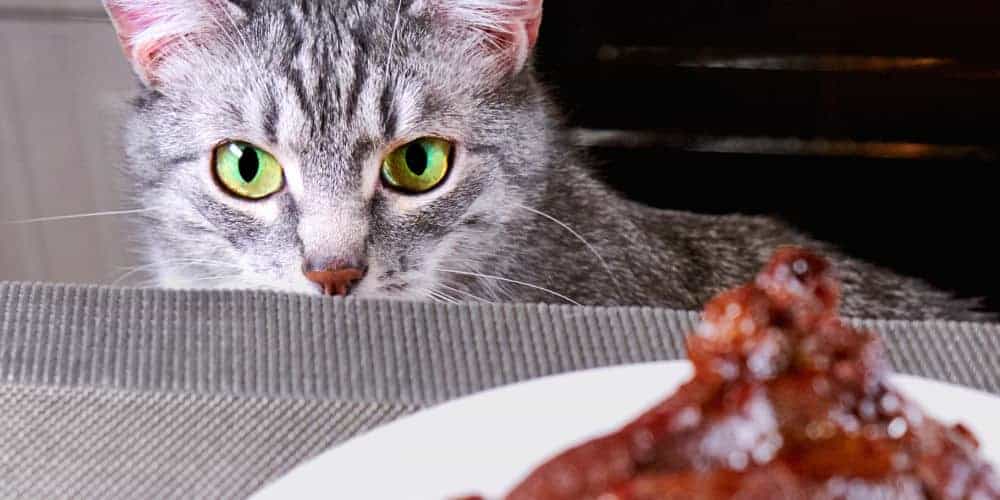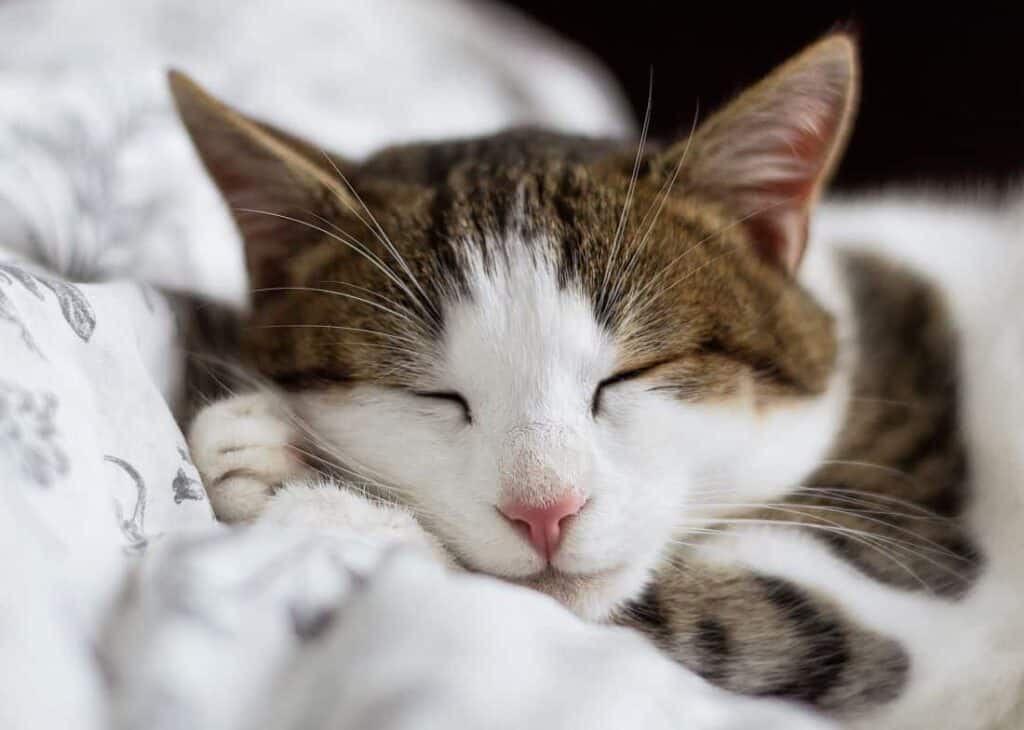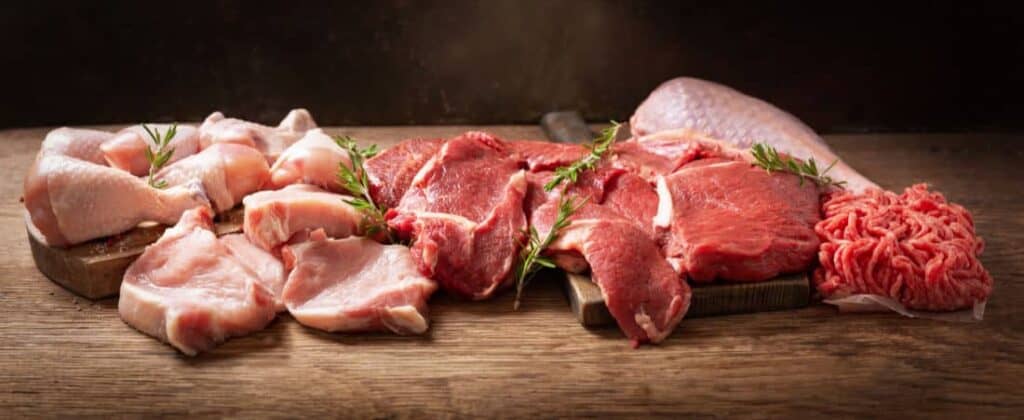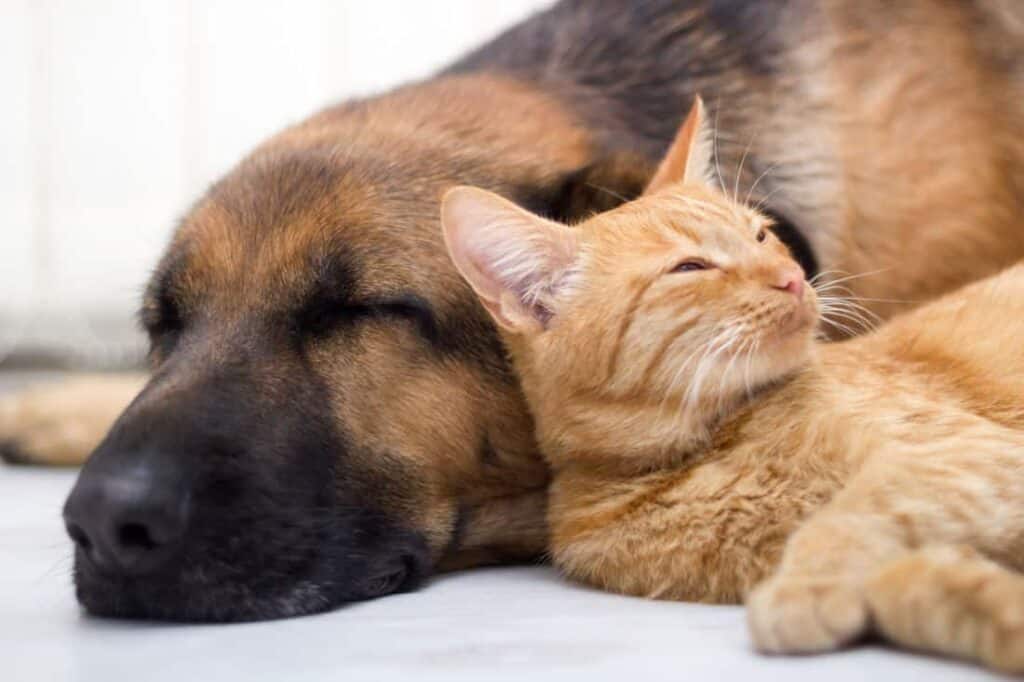Can Cats Eat Pork?

Cats are carnivores, and their diet mainly consists of protein, which they get from eating meat. But if you check a listing of ingredients on many cat foods, you’ll notice that most of these foods haven’t listed pork as one of the ingredients. This has led to many cat owners wondering whether it’s safe for cats to eat pork.
Cats can eat pork, provided you remove all the bone fragments and cook it thoroughly. Feeding your cat small quantities of pork will not cause any significant health problems, but it shouldn’t be their primary source of protein. However, cats have a hard time digesting fats in pork due to their low metabolism.
That’s not all, as you still need to know whether you can feed your cat raw pork, whether cats can get sick from consuming raw pork, and signs to look for if your cat is experiencing health problems after eating pork, which you will learn if you read on.
Cat Attitudes is reader-supported. When you buy through links on our site, we may earn an affiliate commission.
Is Pork Safe For Cats?
As a whole, cats get a majority of their protein from consuming meat. Although pork is rich in proteins, it’s not a great idea to feed it to them regularly. Even in small quantities, it’s best to take precautions when feeding pork to your cat, such as:

- Cook thoroughly – Like beef, pork should be cooked thoroughly before feeding it to your cat.
- Remove the bones – Bones are dangerous to cats since they can tear their stomach lining.
- Make a schedule – Decide how often you want to feed pork to your cat to avoid overfeeding them.
Before you start feeding pork to your cat, there are several things that you need to understand about cats and pork. They include:
Pork Takes Time to Digest
Pork takes the longest time to digest compared to other meat. While this might sound like a great idea, it does have some drawbacks. For starters, your cat will feel bloated and uncomfortable the entire time, which ends up making them feel tired and lazier than they should generally feel.
Secondly, a lot of digestive enzymes are needed to digest pork completely, which might interfere with the digestive system of your cat, especially if you feed them pork more often.
Fats Are Not Good for Cats
Pork is a fatty meat that can be problematic to your cat’s health. Cats take long naps, sometimes sleeping for 20 hours in a day. Since they’re not active most of the time, their metabolism tends to drop, making it hard to burn fats.

Excess fats can clog the cat’s arteries, which can end up causing kidney problems and heart failure. To help your cat avoid these fatal conditions, try limiting the amount of pork you feed to them and try as much as possible to trim out excess fats.
What Are Symptoms That Your Cat Is Intolerant To Pork?
Pork is an excellent source of protein, but it can take a turn on your cat’s health, especially if your cat is intolerant to it. Although these symptoms might be caused by anything, they shouldn’t be ignored, especially if they start occurring after you have fed pork to your cat. They include:
- Vomiting – If your cat cannot keep anything down for days after they ate pork, make sure you take them to the veterinarian immediately.
- Diarrhea – Diarrhea starts when there is something wrong with the digestion system.
- Weight loss – If your cat starts losing weight after eating pork, it shows they’re intolerant to it.
While these are the most common symptoms that highlight your cat’s intolerance to pork, others might show, but only when the condition worsens. They include:
- Hair loss
- Excessive itching
- Skin lesions
- Skin ulcers
Make sure you consult a veterinarian if you suspect your cat has built intolerance to pork. This way, the vet will help to create a healthy diet for your cat.
Can You Feed Your Cat Raw Pork?
As a whole, you should avoid feeding your cat raw meat, but if you must, then you should take the necessary precautions. This way, you’ll be ensuring your cat’s health is not at risk while providing it with the correct quantity of protein. Here are the precautions you should take to feed your cat raw pork:
Heat the Pork
You don’t necessarily have to cook pork to make it safe for your cat to eat, as putting it in a microwave for a few minutes will do the trick. The goal here is to kill off any bacteria or viruses that might be in the meat. Temperatures above176 degrees F are more than enough to kill a majority of bacteria.
Disinfect the Pork with Boiling Water
Not only is boiling water effective in cleansing bacterial infection in pork, but it also helps to disinfect any germs that might cause infection to your cat. Dip the pieces of pork you plan to feed to your cat in a bowl of boiling water and cover them. Let them sit there for five minutes, and make sure to cool them down before you offer them to the cat.
Trim Out the Fat
Make sure you trim out as much fat as possible from pork before feeding it to your cat. This will help keep your cat healthy and avoid fatal medical conditions such as obesity and heart failure. Alternatively, you should opt for pork fillet since it contains little fats making it perfect for your cat, especially if you’re keeping your cat on a diet.
Can Cats Get Sick From Eating Raw Pork?
As a general rule, it’s not a great idea to feed your cat raw meat, regardless of whether it’s beef or pork. While cats might be healthy and able to fight off certain health conditions independently, raw pork exposes them to unnecessary health conditions that could have been avoided.

There is also the risk of interfering with their digestive system, and not to mention bacterial infection. Here are health conditions that your cat might face when they eat raw pork:
Food Poisoning Caused by Bacteria
When you feed your cat raw pork, you run a risk of infecting them with Clostridium Baratii Bacteria that causes Botulism. Botulism is a fatal food poisoning that may end up causing muscle paralysis by attacking the body’s nerves.
Infected cats also experience difficulty breathing, which, if left untreated for a while, might cause death. If your cat starts showing signs of muscle cramps, wheezing in their breathing, and immobility, rush them to a veterinarian immediately for a checkup.
Viral Infection
A common and deadly viral infection to cats after consuming infected raw pork is Suid Herpesvirus. Even though humans and other primates remain immune to this virus, cats and other pets, such as dogs, are not so lucky.

Pigs act as carriers of this deadly virus and can be transmitted to cats if they feed on raw pork. The virus affects the reproductive and respiratory systems of the cat. Common symptoms include lack of coordination and paralysis.
Worm Infection
Untreated pork can be dangerous to your cat since it can be a source of worms such as tapeworms. Cats with these types of worms may experience abrupt weight loss and vomiting.
Tapeworm infestation may lead to kidney and liver failure if left untreated. A quick trip to the veterinarian will help to keep this condition under control.
Final Thoughts
A cat’s diet is made up of protein which they get from meat. In small quantities, pork can be harmless to your cat. Stop feeding your cat raw pork to avoid infecting them with bacteria, viruses, and worms. Always disinfect pork with boiling water and warm it in a microwave to make it safe for your cat.
Sources:
WebMD, Everything What, Merck Manual, Very Well Health, YouTube
